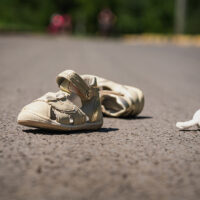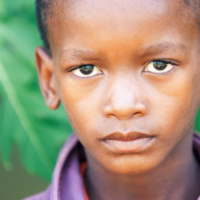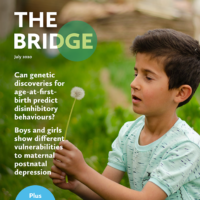Post-traumatic stress disorder (PTSD)
-

Psychological legacies of intergenerational trauma under South African apartheid: Prenatal stress predicts greater vulnerability to the psychological impacts of future stress exposure during late adolescence and early adulthood in Soweto, South Africa
Open Access paper from the JCPP – “We evaluate the intergenerational effects of prenatal stress experienced during apartheid on psychiatric morbidity among children at ages 17–18 and also assess the moderating effects of maternal age, social support, and past household adversity”. Andrew Wooyoung Kim (pic) et al.
Read more -

Understanding Early Trauma: The case for supporting parent-infant relationships
Understanding of adverse childhood experiences has grown in recent years. We now know more about how external circumstances cause psychological trauma in some children. When we understand early trauma – and the importance of early relationships – we are better able to prevent, and respond to, children’s mental health problems. [Please note that this is an external blog and may not reflect the views of ACAMH]
Read more -

Children first – A positional statement from ACAMH board
The Association for Child and Adolescent Mental Health (ACAMH) is deeply concerned about the escalating invasion in Ukraine. This and other ongoing conflicts around the World – Afghanistan, Syria, Yemen and Myanmar, and many others – continue to bring tragic consequences, upturning the lives of many millions of people, and challenging the basic human right to peace and security.
Read more -

ACEs – Adverse Childhood Experiences
Adverse Childhood Experiences (ACEs) are defined as situations that lead to an elevated risk of children and young people experiencing damaging impacts on their health and other social outcomes across the life course.
Read more -

Complex PTSD in young people in care
Aishat Hamzat, Rachel M Hiller and Helen Minnis discuss what research tells us about the mechanisms underlying complex PTSD symptoms experienced by young people in care. They consider implications for treatment and broader support provided for these young people
Read more -

Child soldiers exposed to more violence and combat are at greater risk of mental health problems
Sadly, the involvement of children in armed conflict is increasing,1 and leads to a higher risk of developing mental health problems.
Read more -

Nigerian young people from parentally deprived backgrounds show enhanced working memory capacity
Early adverse rearing can impair cognitive functions in all domains.1 However, those who take an evolutionary–developmental stance propose that there could be adaptive benefits associated with early adverse rearing.2,3
Read more -

ICD-10 versus ICD-11: the effects of PTSD diagnoses
2018 saw PTSD symptoms being changed by the International Classification of Diseases. Now, data from a study recently published in the Journal of Child Psychology and Psychiatry have shed light on the clinical utility of these revisions in the ICD-11.
Read more -

July 2020 – The Bridge
In this issue, we summarise recent studies on a wide range of topics – including sleep, sensory symptoms, emotional symptoms, disinhibition, alcohol misuse, complex PTSD symptoms, and self-harm – which reveal new insights helping us to better understand and address psychopathology in young people.
Read more -

A longitudinal study of cognitive predictors of (complex) post‐traumatic stress in young people in out‐of‐home care
Dr. Rachel Hiller gives a video abstract of her paper ‘A longitudinal study of cognitive predictors of (complex) post‐traumatic stress in young people in out‐of‐home care’.
Read more